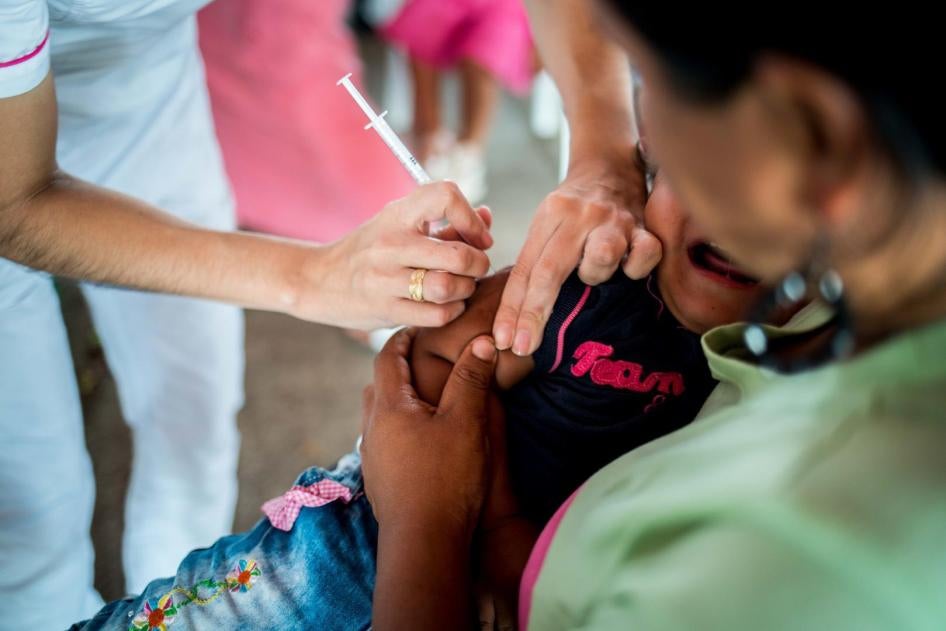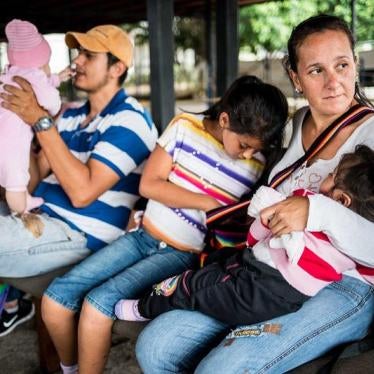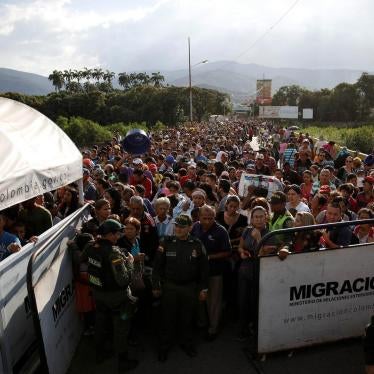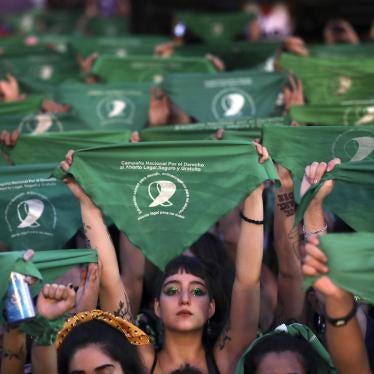By Tamara Taraciuk Broner and Kathleen Page
President Nicolás Maduro of Venezuela finally asked the United Nations for help to purchase medical equipment in mid-November, saying that “North American imperialism is persecuting and blocking us.” But days earlier, the main public hospital in Caracas rejected medicines and supplies donated by the nongovernmental humanitarian group Doctors Without Borders.
At first glance, this may seem contradictory. But it more likely reveals an incipient change in the Maduro government’s absolute denial of the country’s humanitarian crisis.
Maduro’s government remains as opaque and repressive as ever. In January, the president called those who spoke out about the crisis “traitors to the fatherland.” His threat should be taken seriously in a country without judicial independence, where critics have been arbitrarily jailed and tortured, and hunger has been used for social and political control.
The government stopped publishing nutritional information and epidemiological bulletins on dozens of illnesses years ago. Doctors told us that hospital authorities forbade them from providing statistics, calling attention to the health crisis publicly or including malnutrition as a diagnosis on patients’ medical records. Several medical professionals have been fired or detained for speaking out. Some brave ones continue to document the crisis under the radar despite fear of retaliation.
But no matter how hard the government tries to hide the truth, the numbers speak for themselves.
In 2018, the United Nations’ Food and Agriculture Organization indicated that between 2015 and 2017, 11.7 percent of Venezuela’s population — 3.7 million people — was undernourished, up from less than 5 percent between 2008 and 2013. Unofficial statistics indicate that 80 percent of Venezuelan households are food insecure, and the percentage of children under 5 with severe and moderate acute malnutrition in some locations surpasses the World Health Organization threshold for a crisis.
Venezuela is the world’s only middle-income country where large numbers of patients with HIV have been forced to discontinue their antiretroviral treatment. Among the 79,000 HIV-infected patients registered to receive treatment from the public health system, 87 percent are not getting it. The medical system collapse is so severe that infectious diseases easily preventable by vaccination have surged. According to the Pan American Health Organization, more than 7,300 suspected measles have been reported since an outbreak began in mid-2017, after eight years in which only one case had been reported. After nine years with no reported cases of diphtheria, more than 2,000 cases were recorded in the past two years, with more than 200 fatalities.
The WHO reported that malaria is an epidemic in nine of Venezuela’s 23 states and is rising at the fastest rate in the world. In 2017, there were more than 406,000 malaria cases, a 69 percent increase from the year before.
The number of reported tuberculosis cases increased from 6,000 in 2014 to more than 10,000 cases in 2017 — the highest incidence rate in Venezuela in 40 years.
The collapse of Venezuela’s health system has become evident to the world with the massive exodus of Venezuelans. More than 3 million have fled since 2014, according to the United Nations. Many cross the borders to Brazil or Colombia seeking medical care or food. One would expect the Maduro government to acknowledge the gravity of the situation and ask for whatever help it might need. Instead, it has gone from denying what was happening to saying that problems result entirely from an economic crisis caused by foreign “economic sanctions.”
But most sanctions — imposed by the United States, Canada and the European Union — are limited to canceling visas and freezing assets of key officials implicated in abuses and corruption. They have no impact on the Venezuelan economy.
In 2017, the United States also imposed financial sanctions, including a ban on dealings in new stocks and bonds issued by the government and its state oil company. But even these include an exception for transactions to purchase food and medicines. In fact, the government has purchased food from abroad, but these efforts have given rise to corruption allegations.
More aid from U.N. agencies has started to arrive in Venezuela recently, but it may be too little and too late. On Monday, the United Nations announced the first emergency funding for Venezuela, a total of $9.2 million in health and nutritional aid, but some worry the money could be lost to corruption.
Maduro’s opportunistic rhetorical change portraying himself as a victim will not provide the international legitimacy he’s lost unless there are real changes.
To uphold the rights to food and health in Venezuela, regional governments should convene a high-level meeting and invite experts from the Organization of American States, the European Union, key U.N. agencies and nongovernmental groups to design an aid plan. Participants should agree on immediate, medium- and long-term strategies that include an independent assessment of the scale of the crisis.
And then — what might actually be harder still — they should put considerable pressure on Venezuela to accept whatever aid is needed. In the meantime, they should consider working closely with nongovernmental and church groups to get more aid into the country. That won’t solve the problem, but could provide additional and much-needed relief to the Venezuelan people.
Tamara Taraciuk Broner is a senior Americas researcher covering Venezuela for Human Rights Watch, and Kathleen Page is an associate professor and medical doctor at Johns Hopkins University.









